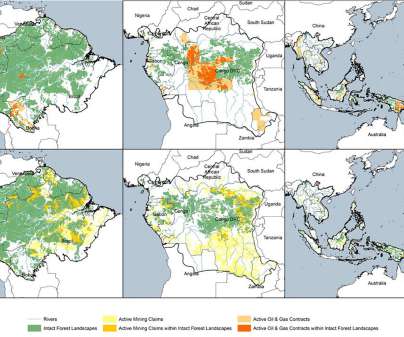Nearly 20% of intact tropical forest landscapes overlap with extractive industries
Green Car Congress
JULY 19, 2021
A new study from WCS (Wildlife Conservation Society) and WWF finds that nearly 20% of tropical Intact Forest Landscapes (IFLs) overlap with concessions for extractive industries such as mining, oil and gas. Intact forests are declining rapidly, with more than 7 percent of their total area lost between 2000 and 2013. Grantham et al.



















Let's personalize your content